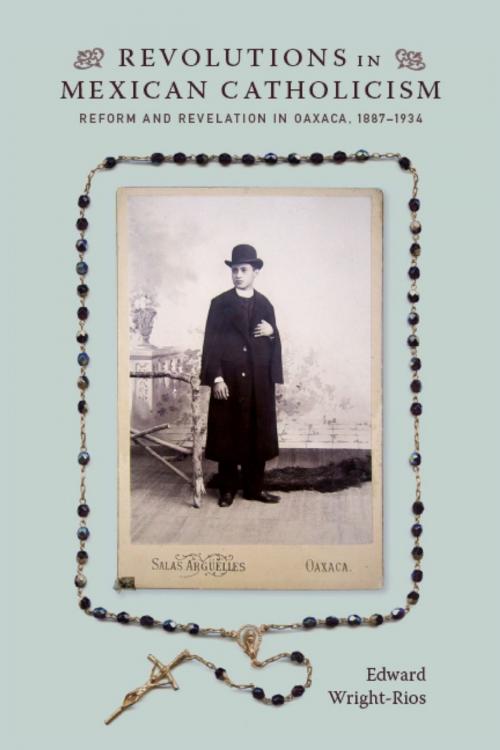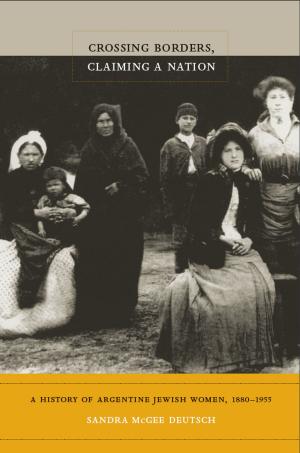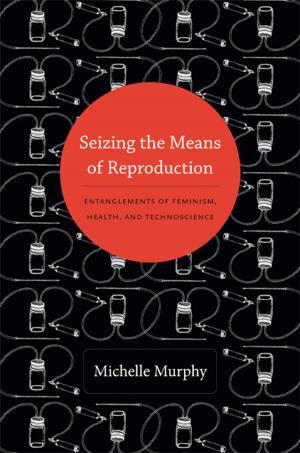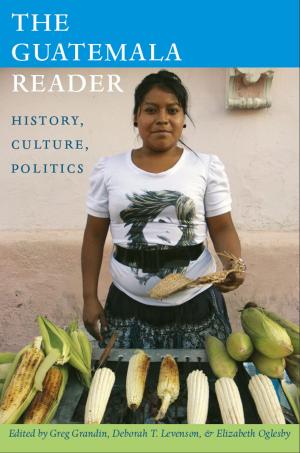Revolutions in Mexican Catholicism
Reform and Revelation in Oaxaca, 1887–1934
Nonfiction, History, Americas, Mexico, Religion & Spirituality, Christianity, Denominations, Catholic, Catholicism, Church| Author: | Edward Wright-Rios | ISBN: | 9780822392286 |
| Publisher: | Duke University Press | Publication: | April 20, 2009 |
| Imprint: | Duke University Press Books | Language: | English |
| Author: | Edward Wright-Rios |
| ISBN: | 9780822392286 |
| Publisher: | Duke University Press |
| Publication: | April 20, 2009 |
| Imprint: | Duke University Press Books |
| Language: | English |
In Revolutions in Mexican Catholicism, Edward Wright-Rios investigates how Catholicism was lived and experienced in the Archdiocese of Oaxaca, a region known for its distinct indigenous cultures and vibrant religious life, during the turbulent period of modernization in Mexico that extended from the late nineteenth century through the early twentieth. Wright-Rios centers his analysis on three “visions” of Catholicism: an enterprising archbishop’s ambitious religious reform project, an elderly indigenous woman’s remarkable career as a seer and faith healer, and an apparition movement that coalesced around a visionary Indian girl. Deftly integrating documentary evidence with oral histories, Wright-Rios provides a rich, textured portrait of Catholicism during the decades leading up to the Mexican Revolution of 1910 and throughout the tempestuous 1920s.
Wright-Rios demonstrates that pastors, peasants, and laywomen sought to enliven and shape popular religion in Oaxaca. The clergy tried to adapt the Vatican’s blueprint for Catholic revival to Oaxaca through institutional reforms and attempts to alter the nature and feel of lay religious practice in what amounted to a religious modernization program. Yet some devout women had their own plans. They proclaimed their personal experiences of miraculous revelation, pressured priests to recognize those experiences, marshaled their supporters, and even created new local institutions to advance their causes and sustain the new practices they created. By describing female-led visionary movements and the ideas, traditions, and startling innovations that emerged from Oaxaca’s indigenous laity, Wright-Rios adds a rarely documented perspective to Mexican cultural history. He reveals a remarkable dynamic of interaction and negotiation in which priests and parishioners as well as prelates and local seers sometimes clashed and sometimes cooperated but remained engaged with one another in the process of making their faith meaningful in tumultuous times.
In Revolutions in Mexican Catholicism, Edward Wright-Rios investigates how Catholicism was lived and experienced in the Archdiocese of Oaxaca, a region known for its distinct indigenous cultures and vibrant religious life, during the turbulent period of modernization in Mexico that extended from the late nineteenth century through the early twentieth. Wright-Rios centers his analysis on three “visions” of Catholicism: an enterprising archbishop’s ambitious religious reform project, an elderly indigenous woman’s remarkable career as a seer and faith healer, and an apparition movement that coalesced around a visionary Indian girl. Deftly integrating documentary evidence with oral histories, Wright-Rios provides a rich, textured portrait of Catholicism during the decades leading up to the Mexican Revolution of 1910 and throughout the tempestuous 1920s.
Wright-Rios demonstrates that pastors, peasants, and laywomen sought to enliven and shape popular religion in Oaxaca. The clergy tried to adapt the Vatican’s blueprint for Catholic revival to Oaxaca through institutional reforms and attempts to alter the nature and feel of lay religious practice in what amounted to a religious modernization program. Yet some devout women had their own plans. They proclaimed their personal experiences of miraculous revelation, pressured priests to recognize those experiences, marshaled their supporters, and even created new local institutions to advance their causes and sustain the new practices they created. By describing female-led visionary movements and the ideas, traditions, and startling innovations that emerged from Oaxaca’s indigenous laity, Wright-Rios adds a rarely documented perspective to Mexican cultural history. He reveals a remarkable dynamic of interaction and negotiation in which priests and parishioners as well as prelates and local seers sometimes clashed and sometimes cooperated but remained engaged with one another in the process of making their faith meaningful in tumultuous times.















